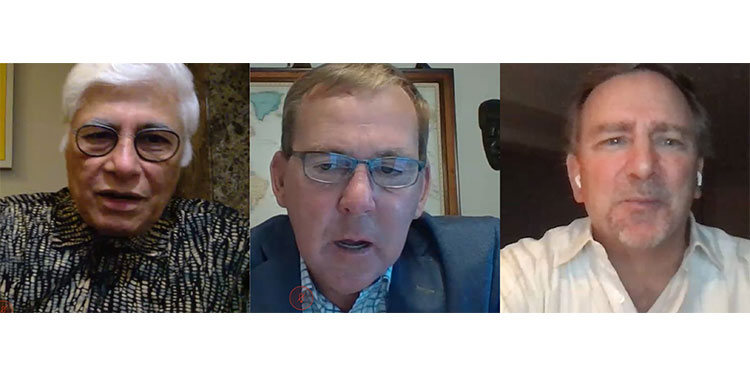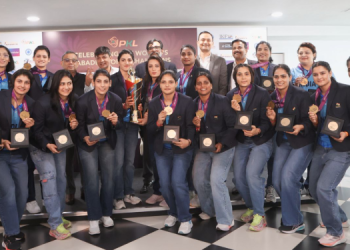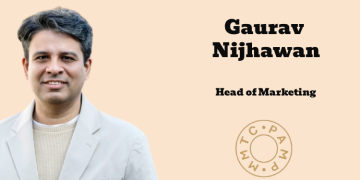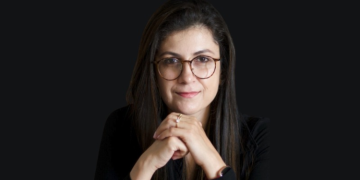Mumbai: Post-COVID, India stands a chance to thrive economically, if it pulls up its socks and builds itself as a welcome destination for global investment, according to many financial experts. This means it needs to act now to allow ease of doing business, reduce tax and regulation bottlenecks and aid foreign companies who are exiting their bases in China.
Experts at the ‘Investments into India and the USA’ webinar, organised by the Indo-American Chamber of Commerce (IACC) and Invest India, brainstormed strategies to ease international business to India, boost Indo-American economic cooperation and look at two-way measures to benefit both the economies. This webinar is the fourth segment in a series of conferences promoting Indo-US bilateral investment.
“India needs to develop the art of visualisation… It’s not easy to uproot all of the current investment from China to India overnight”, said Nishith Desai, Founder and Partner at Nishith Desai Associates.
The current anti-China sentiment is fuelling many international businesses to rethink their Chinese bases. However, Desai explained, someone who has invested a lot in infrastructure, land use and technology will need a haven that welcomes international businesses. “It is not very easy to migrate from China to India. For manufacturing, we need to be careful about environmental issues, especially around pollution”, he added.
“Here, India will compete with a lot of other South-east Asian countries, like Vietnam, which is very welcoming to foreign companies”, said Sunil Kaul, Managing Director & Head, Southeast Director Asia for the Carlyle Group.
“For the Indian side, the barrier stems from the lack of single-window clearance for investors”, said Dave Springsteen, Partner, Withum. “Foreign businesses who seek to develop roots in India have to face a committee of secretaries from 35 central ministries or departments, besides an overall regime of 767 establishments pre-operational licenses. That’s beyond all inspections, approvals and renewals you need after the work begins”, he added.
Then, there’s also the case of regulatory controls and taxation policies. “We need to keep simplifying our tax systems and provide ease and predictability in tax systems and regulatory systems so that people who want to invest are aware of what they’re getting into”, Kaul added.
“Many Indian businesses who decide to set up base in the USA, face similar issues – the lack of proper paperwork, according to different states and the federal departments”, said Timothy R Lavender, Partner at Kelley Drye.
The second piece for this puzzle is to find a solution to tax cross-border or international transactions. “The way these cross-border transactions are to be taxed is an issue that the world is grappling with. The challenge in India, is also about implementing and interpreting the good laws we have”, said Kamlesh Vikamsey, Senior Partner, Khimji Kunverji & Co.
The group also brainstormed on areas where Indo-US collaboration would work spectacularly. “Services will see a huge upsurge – technology, media and entertainment, telecom, pharma, healthcare, medical devices, agrotech, IoT. Financial services, especially insurance, is also catching up, with the government allowing FDI upto 45% here”, said Nishith Desai.
Two prominent areas, according to Hoonar Janu, Co-Head (Americas), Invest India were defence and healthcare. “I’ve seen a four-fold increase in American ventures seeking Indian partners in defence and three times in healthcare”, he said.
For this conversation, the Chamber brought together noted experts from industry. These included Nishith Desai, Founder & Partner, Nishith Desai & Associates; Sunil Kaul, Managing Director & Head, Southeast Director Asia, Carlyle Group; Hoonar Janu, Co-Head, Americas Region, Invest India; Dave Springsteen, Partner, Withum; Timothy R Lavender and Deepak Nambiar, Partners at Kelley Drye; Kamlesh Vikamsey, Senior Partner, Khimji Kunverji & Co and Rajesh Tripathi, Principal, US India Corridor, Withum. Tripathi and Nambiar moderated the discussion.
















